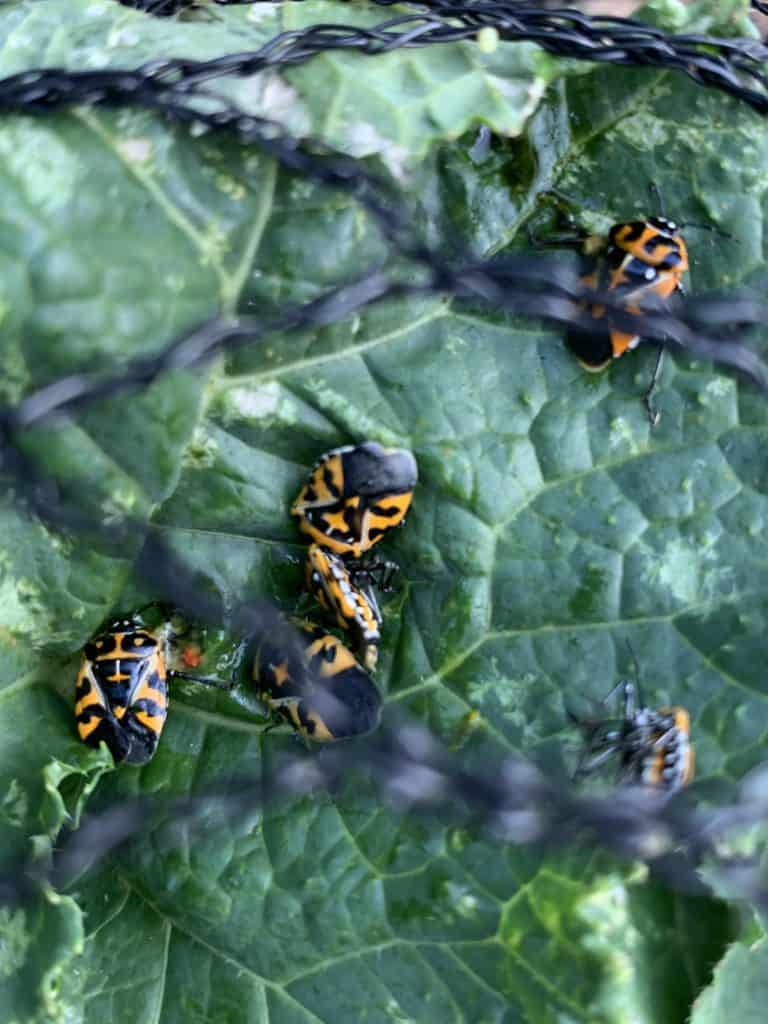Gardening for Health

Make the Switch to Organic Pesticides
By Maria Price
Late summer in the vegetable garden brings many pests to devour what you’ve carefully grown all summer. Squash bugs can destroy the zucchini bed in a couple of weeks. Harlequin bugs will suck the juices out of every Brassica plant leaving you with dried up stalks.
It may be tempting to fight them off with pesticides, but here’s something many gardeners don’t want to think about: Pesticides can be hazardous to humans and wildlife and most will kill beneficial insects along with problem pests. While it’s best to eliminate pesticide use, organic pesticides pose the least harm to organisms you don’t want to hurt.
The National Organic Program standards serve as a framework for certified-organic food production. The nonprofit Organic Materials Review Institute (OMRI) evaluates whether or not specific products comply with its standards.
To be sure, look for the approved products that display the OMRI seal on their label or check the OMRI website (www.OMRI.org) to see whether a product is approved.
5 ways to control garden pests safely
BT, or Bacillus thuringiensis, is a naturally occurring bacteria that makes pests sick when they eat it. It’s great for controlling caterpillars such as cabbage worms and tomato hornworms. After the insects eat the bacteria their gut ruptures and they die.
Horticultural oils interfere with respiration, causing the insects to suffocate and die. Superior horticultural oils evaporate quickly and are less likely to injure foliage compared to heavier oils. Horticultural oils kill insects that over-winter in bark crevices such as aphids, mites, mealy bugs and scale.
Insecticidal soap breaks down the protective cuticle of soft body pests so they quickly become dehydrated and die. Insecticidal soap controls aphids, mealy bugs, spider mites, psyllids, thrips and white flies. It may also give some protection against very young earwigs, grasshoppers, Harlequin bugs, leaf hoppers, sawfly larva and squash bugs, provided the larvae become well-soaked with soap solution.
Neem oil from the Asian neem tree contains azadirachtin as well as several steroids. When applied to insects, the oil causes many insects to feed less, grow slowly and lose interest in laying eggs. Neem’s effects are strongest on younger insects such as squash bugs, Colorado potato beetles and Mexican bean beetles.
Pyrethrum is the oldest and strongest insecticide allowed under National Organic Standards guidelines. It’s made from the flowers of dalmatian daisy. Insects are paralyzed as soon as they come into contact. Pyrethrum should be used with great care. Use in early evening to avoid spraying on bees, wasps and other beneficials. It’s also highly toxic to fish. Pyrethrum helps control aphids, armyworms, cucumber beetles, squash bugs, white flies, leaf hoppers, thrips and Colorado potato beetles.
Adapted from MotherEarthNews.com article by Barbara Pleasant: motherearthnews.com/organic-gardening/pest-control/pest-control-organic-pesticides-zl0z1305zkin
